Opening up
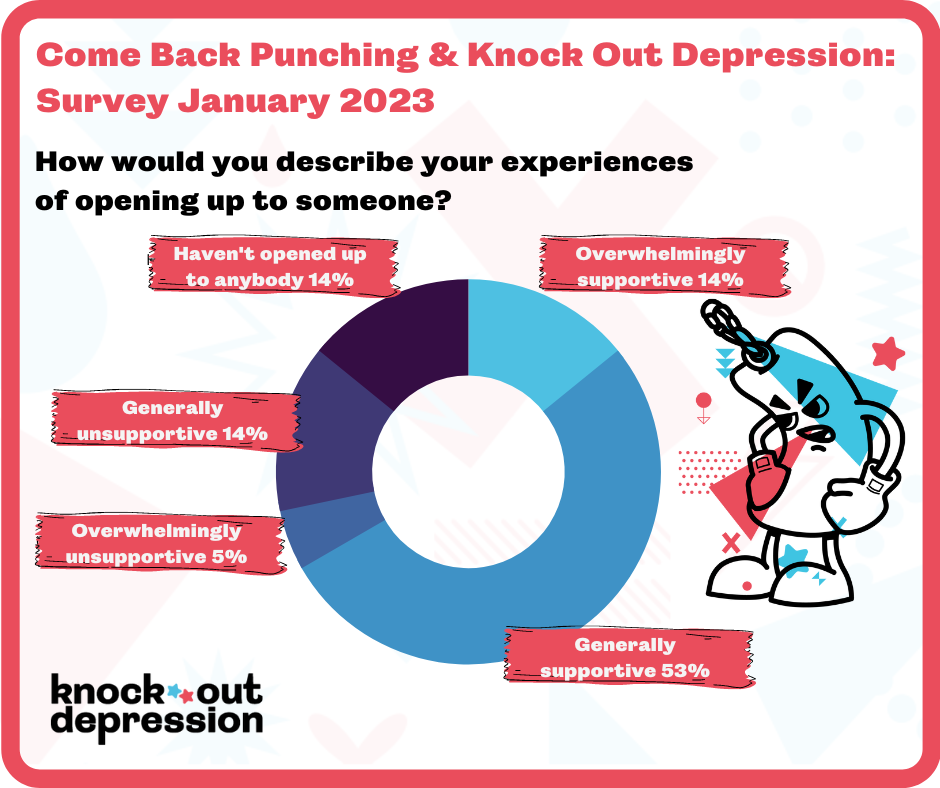
A major takeaway, and something I think is really important to emphasise, is that 67% of people reported that the response to them opening up was supportive. By comparison, 19% felt unsupported.
I would hope that if you are amongst the 14% of people who haven't opened up to anybody, you may take some comfort from the majority who have found the response to be supportive, and consider seeking support for yourself.


Yes, the myth persists that depression is a weakness, and our survey showed that it had stopped a huge 42% of respondents from opening up or asking for help.
This is why it is so important that we keep talking about mental health and challenging such outdated and, frankly, dangerous ideas.
There are further fears that stop people opening up, the vast majority of which relate to concern over others' reactions.
Again, it is so important that as a society we show compassion and care for those who are struggling, as well as a wish to understand and help, rather than judge.
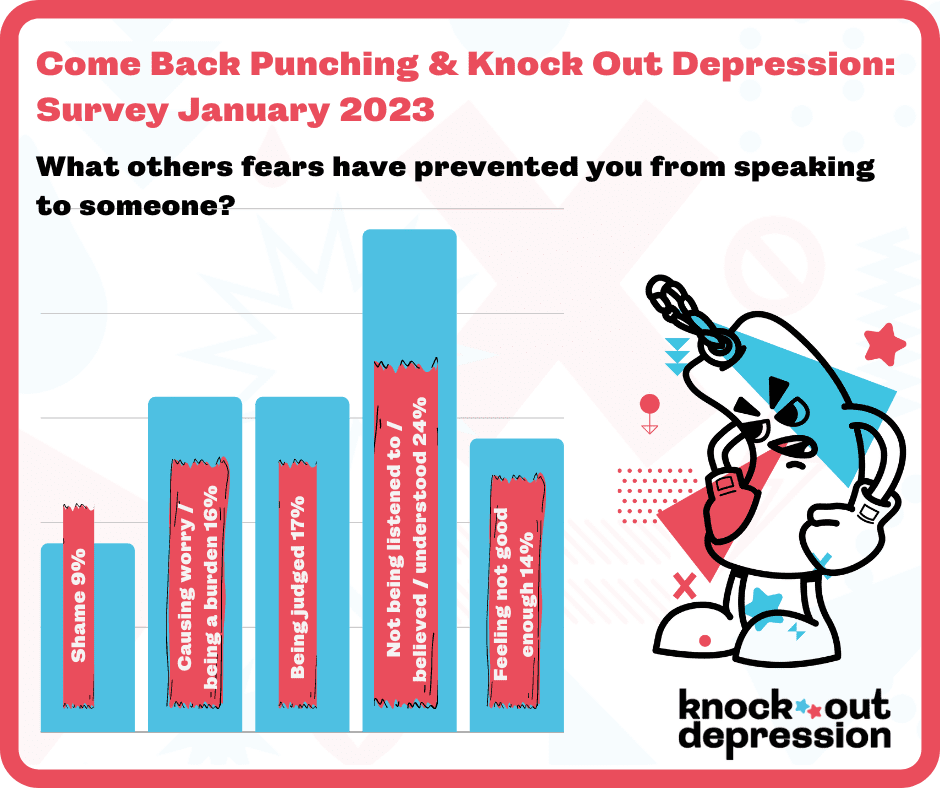
Causes of depression
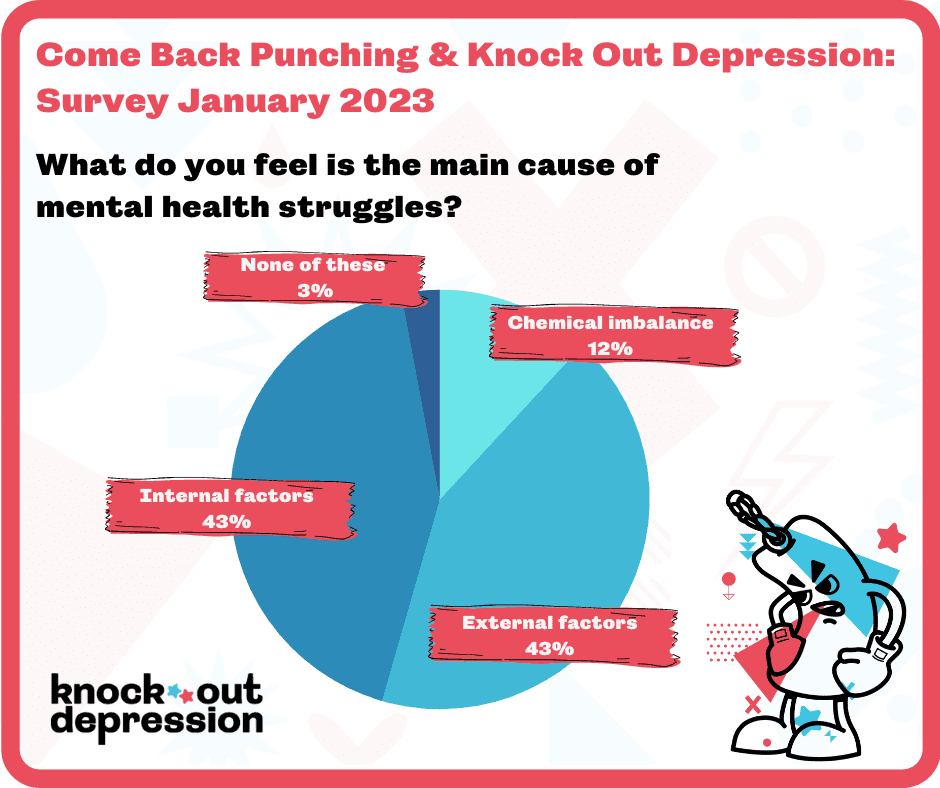
There has been a prevailing view among many, that depression is caused by a chemical imbalance. This is a theory, and one that has been largely debunked (see Psychology Today article, July 2022).
Our survey shows that, overwhelmingly, people's experience suggests to them that the main causes are actually external factors (i.e. job, relationships) or internal factors (i.e. low self-esteem, negative self-talk).
The good news is we can identify potential personal causes that are within our ability to control, and create strategies for addressing them.
Identity
Our mental health is strongly linked to our sense of identity. Only 5% of respondents report that they know who they are and are happy with who they are.
One of the most distressing things about experiencing depression is how it strips away our sense of self. We aren't 'me' anymore.
However this offers an opportunity - to really examine who we are and to cultivate a strong sense of self, which can ultimately improve our mental health.
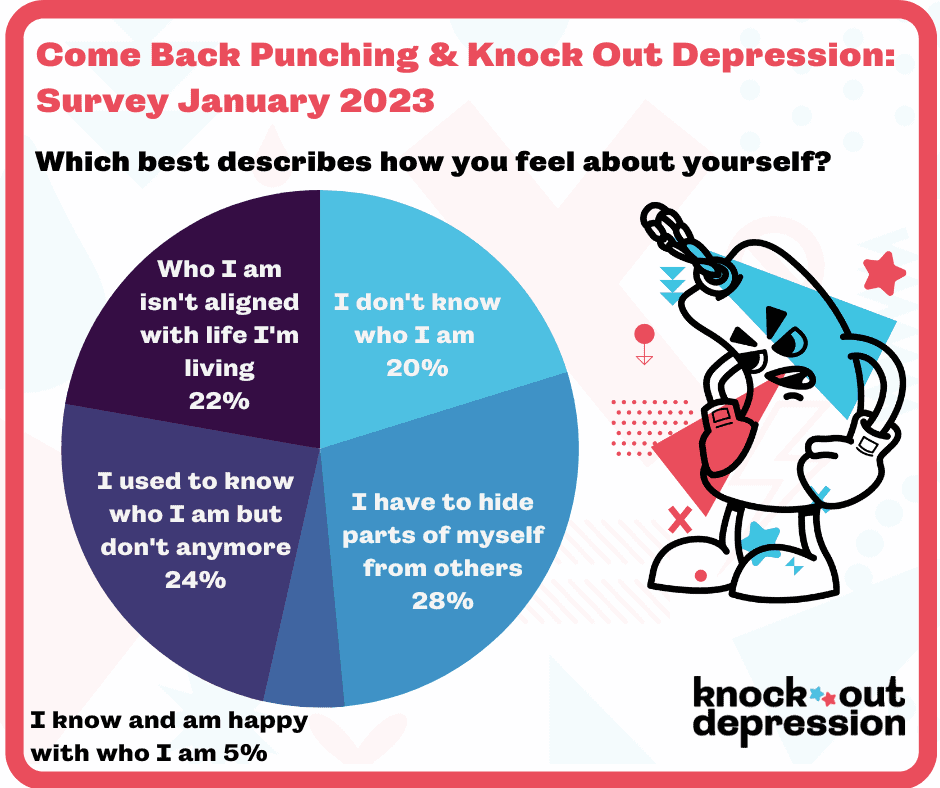
Help and support

You don't need me to tell you that our health services are severely under-resourced, and mental health services especially are woefully under-funded.
Anybody that takes the brave step of seeking professional help may well find a lack of options and long waiting lists for help.
This is why we created our Knock Out Depression online support programme, which offers instantly accessible support.
Our survey shows that, worryingly, 36% of respondents found the support they received either unhelpful or very unhelpful, while only 21% found them helpful or very helpful.
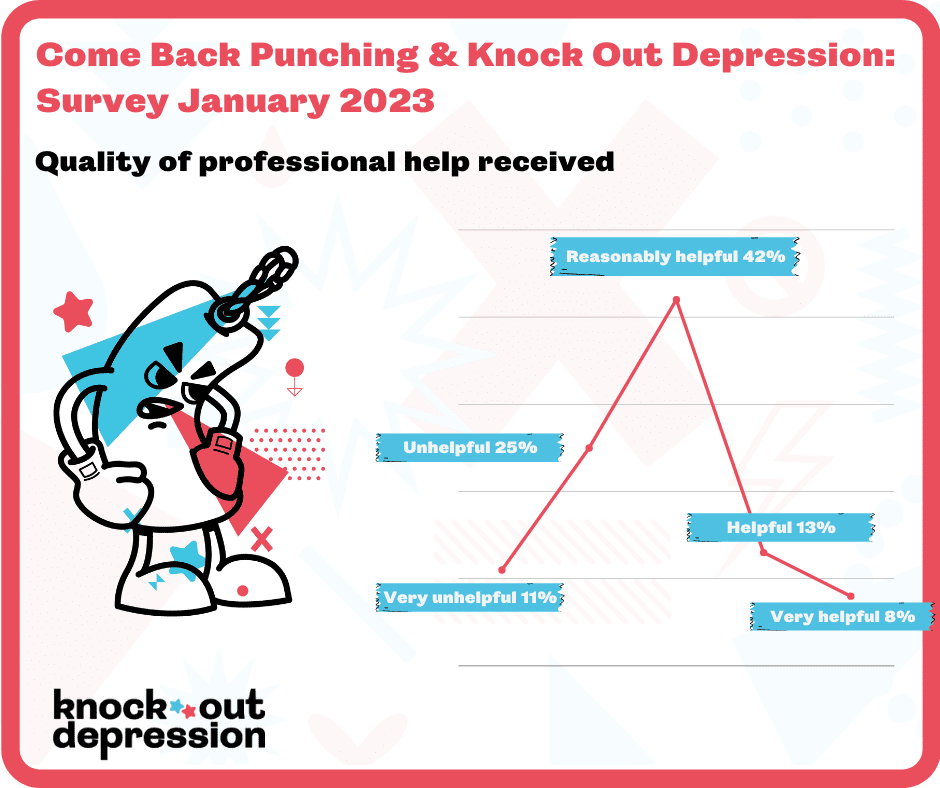

There are reasons for hope.
Respondents identified over 30 different things that they had found particularly helpful, the majority of which can be applied by anybody. In addition to the most popular responses shown in the chart, other methods included journalling, music, breathing, and creative activities.
Fundamental to Knock Out Depression is the belief that there is no 'magic bullet' - we believe in supporting you to find the 'right combination' with which to fight your fight.
We have a long way to go to ensure that everybody has timely access to a range of mental health support services, and we must do better. There is a real need for a significant increase in resources, as over a third of respondents identified.
However, we can all help to improve the experience of those who struggle by not only talking, but by listening without judgement, and seeking to understand, by showing that we care and by being there when someone needs us.
We must do better, but we CAN knock out depression.
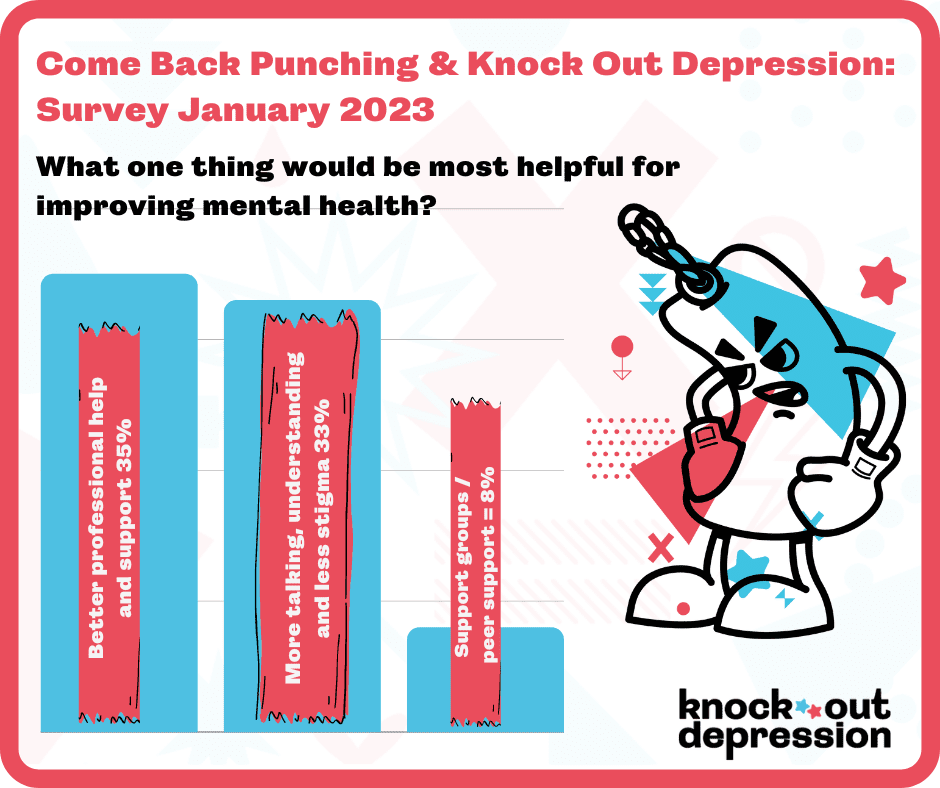
Join the Knock Out Depression online support programme.
For further information and details of how to register hit the button below.
Join Knock Out Depression































